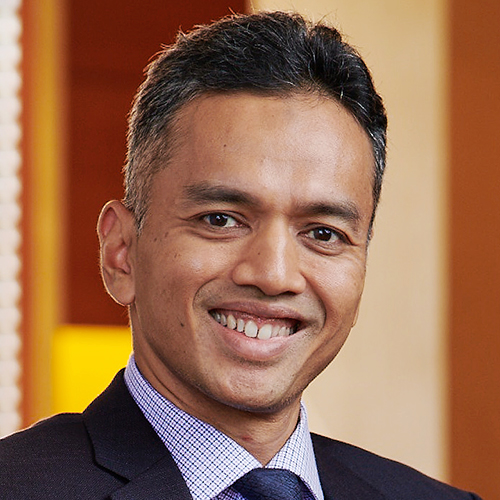
Media, social media and those who ply their trade in ESG financial markets have been in hyperdrive since Stuart Kirk delivered his “Why investors need not worry about climate risk” conference presentation. A lot of people have been screaming for his head on a platter. Should HSBC Asset Management’s head of responsible investments be cancelled?
Having a view and being able to express it without fear or favour is presumably part of his job description. So, on that basis, he should absolutely not be cancelled – unless HSBC is forcing employees to learn and stick rigidly to a party line on key topics of interest.
Kirk did say right at the start of his presentation that he would be taking a financial and investment view of the climate topic. That is a critically important distinction. But even then, I wonder what upside he thought there would be in espousing a view that he must have known would have appeared to casual observers as trivializing the need for climate action today because he believes it presents much less of an immediate financial threat than, say, growth and inflation.
A lot of what he probably intended was misconstrued and his nuances lost because the tone and language of his presentation made him come across – again to casual observers – as a climate denier. Regardless of the validity of Kirk’s (nuanced) points, his narrative had exit trade written all over it; his reported suspension not that surprising.
He made some reasonable points. Like investors focusing on taking advantage of the thousands of opportunities coming out of transition. Or backing the power of human ingenuity to adapt to the effects of climate change and advocating more adaptation finance to balance out the focus on mitigation finance. His point about HSBC’s loan book having a six-year average tenor was not about not caring about what happens to the climate in year seven. From a purely financial perspective, year seven is indeed irrelevant for the bank’s loan book today. That’s a very different statement.
Admitting to putting up slides just to annoy people (like the one showing a positive correlation between asset prices and mentions of “climate catastrophe” in the media) was annoying in itself, and irrelevant. Debunking the notion that climate change will have a deleterious impact on world economic growth in 2100 was a bit too clever.
There is rarely any upside in criticizing your own employer in a public forum, or accusing central bankers of climate fixation as well as model skulduggery with regard to bank climate stress tests, or moaning about how much time you’re forced to spend dealing with reams of climate regulation, or throwing pointed personal criticisms at individuals.
Kirk is clearly frustrated at people who believe the world is going to end as a result of climate Armageddon. Here he has support from eminent climate scientists. I saw Dr Friederike Otto quoted by the BBC the other day. Otto is no slouch when it comes to climate science. She’s a drafting author of Working Group I’s contribution to the IPCC's Sixth Assessment Report and senior lecturer in climate science at the Grantham Institute for Climate Change and the Environment at Imperial College London.
In the BBC story, she was quoted as saying: “I don't think it's helpful to pretend that climate change will lead to humanity's extinction … There is no denying that there are large changes across the globe, and that some of them are irreversible. It doesn't mean the world is going to end,” adding “we have to adapt, and we have to stop emitting."
A subsidiary effect of Kirk’s presentation was to create a PR nightmare for HSBC, prompting panicked retorts from HSBC top brass – group CEO Noel Quinn, asset management boss Nicolas Moreau, head of wealth and personal banking Nuno Matos, and group chief sustainability officer Celine Herweijer – to head off any reputational damage. With little success, as HSBC came under fire – again – for not doing more to accelerate climate action in its business and for continuing to fund fossil-fuel companies.
Kirk did have his supporters, including Tariq Fancy. Remember him? BlackRock’s former head of sustainable investing whose Secret Diary of a Sustainable Investor essays last year (“that shares how my thinking evolved from evangelizing ‘sustainable investing’ for the world’s largest investment firm to decrying it as a dangerous placebo that harms the public interest”) rocked the ESG word?
Responding to Noel Quinn’s weekend LinkedIn damage-limitation post, Fancy wrote: “Noel Quinn – I don't think Kirk was saying that climate change is not real, or that it does not have long-term negative economic impacts. He was saying that it's not very relevant to most portfolio strategies because, among other things, they're oriented toward the short term.”
He added: “Given the poor performance of the financial services industry in recent years to do anything useful to curb emissions despite years of talking about it (witness the latest IPCC report...) we need a fresh debate on the consensus of failed ideas coming from global banks today. If Kirk's frankness helps sparks that debate, all the better: we're running out of time. (Also, important that we always remember: dealing with climate financial risks, i.e., a portfolio adaptation strategy – is NOT the same thing as fighting climate change itself.)”
Spot on.
One takeaway from this saga is that if you set out to shake up hardening orthodoxies around climate change, a subject around which there is growing militancy and diminishing latitude for dissent, you had better be prepared for the backlash or tread very carefully indeed.









